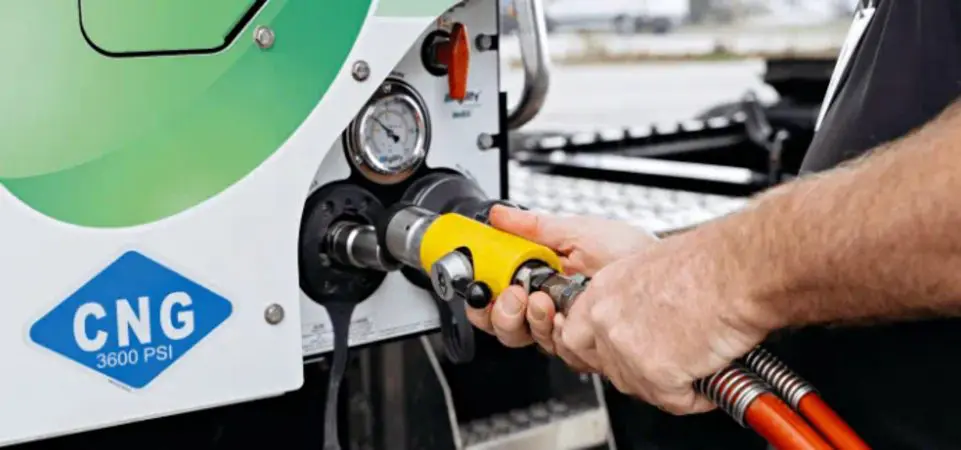More economic pressure is mounting on Nigerians as the cost of Compressed Natural Gas (CNG) has surged across filling stations nationwide.
According to Taofeek Lawal, spokesperson for NIPCO, a major petroleum products marketer, the new pricing structure took effect this week. CNG now sells for ₦380 per Standard Cubic Meter (SCM) for commercial vehicles and ₦450 per SCM for heavy-duty trucks, up from the previous rates of ₦230 and ₦320 respectively.
This represents a 65.22% increase (₦150) for commercial vehicles and a 40.63% rise (₦130) for trucks.
A Nationwide Adjustment
The hike cuts across all major CNG filling stations, including outlets operated by the Nigerian National Petroleum Company Limited (NNPCL), Greenville, AYM Shafa, and NIPCO itself.
Lawal explained that the increment was necessary for CNG investors and operators to remain financially sustainable.
“The adjustment applies to all CNG stations in Nigeria. It’s mainly to cover operational costs and also to encourage more investments in the sector. At ₦230 and ₦320, the business was simply not viable,” he said.
As it stands:
-
Commercial vehicles pay ₦380 per SCM
-
Truck drivers pay ₦450 per SCM
-
Prices are uniform across stations such as NNPCL, Greenville, and AYM Shafa
Contrast with Fuel Prices
Interestingly, while CNG prices continue to climb, petrol prices have remained relatively stable for over a week — ranging between ₦865 and ₦910 per litre in Lagos and Abuja.
Background: The CNG Initiative
Following the fuel subsidy removal in 2023, the federal government launched the Presidential Compressed Natural Gas Initiative (PCNGI) to provide Nigerians with a cheaper alternative to petrol.
As of June 2025, there are 65 operational CNG stations across Nigeria under the initiative. However, with this fresh hike, Nigerians are questioning whether CNG will still serve as a cost-saving alternative for transportation and logistics.
Final Take
While the government continues to push for wider adoption of CNG, commuters and transport operators are left grappling with higher operational costs. The coming months will reveal whether this hike will discourage the adoption of CNG or stimulate more investment in the sector.

